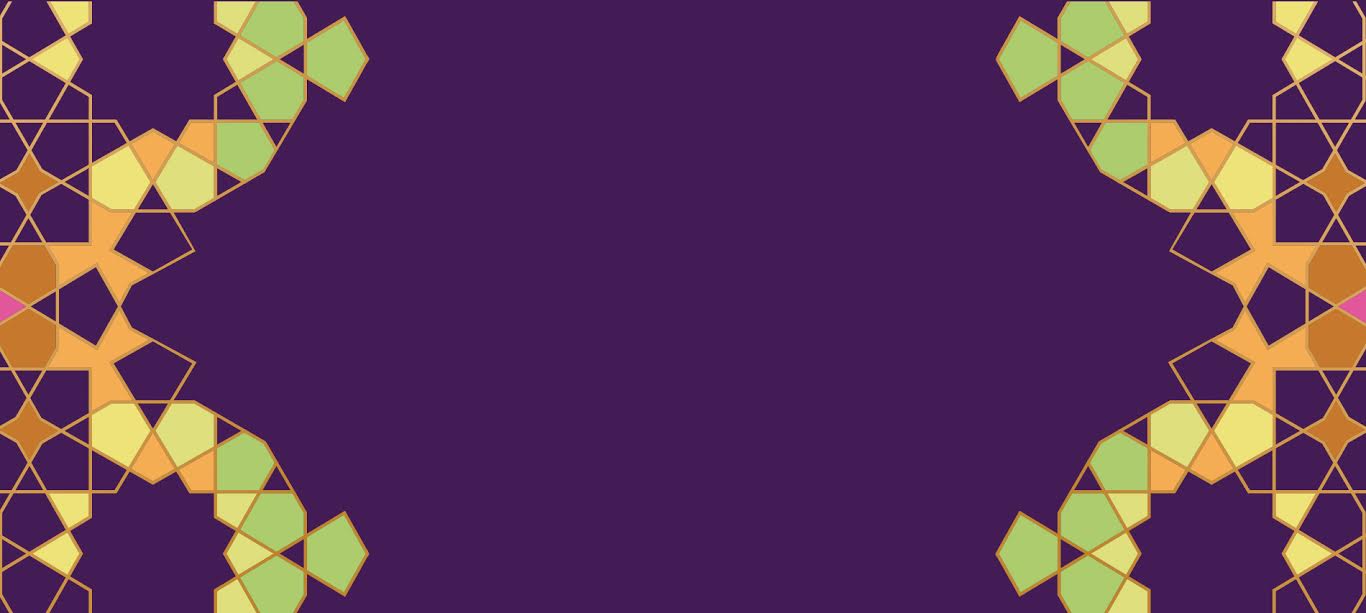October is when there’s no denying the chill in the air. It’s no surprise then that it is one of the best months to cozy up with a new book! Get ready to bookmark this page with this list of our latest releases!
Full of intriguing stories from across different lands. to finding the best beauty rituals, fascinating biographies and so much more, scroll through this list to fill up your October reading calendar.
Babasaheb
My Life With Dr Ambedkar
Savita Ambedkar, Nadeem Khan
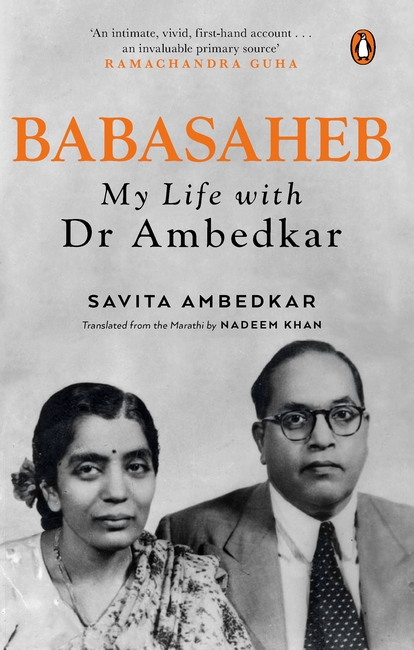
Born into a middle-class, Sarasvat Brahmin family, Dr Sharada Kabir met and got to know Dr Bhimrao Ambedkar as a patient riddled with life-threatening diseases, and eventually married him on 15 April 1948, getting rechristened as Savita Ambedkar. From the day of their wedding to the death of Dr Ambedkar on 6 December 1956, she aided him in some of his greatest achievements-drafting the Constitution of India, framing the Hindu Code Bill, writing some of his most celebrated books, including The Buddha and His Dhamma, and leading millions of Dalits into Buddhism.
The Wisdom Bridge
Kamlesh D. Patel
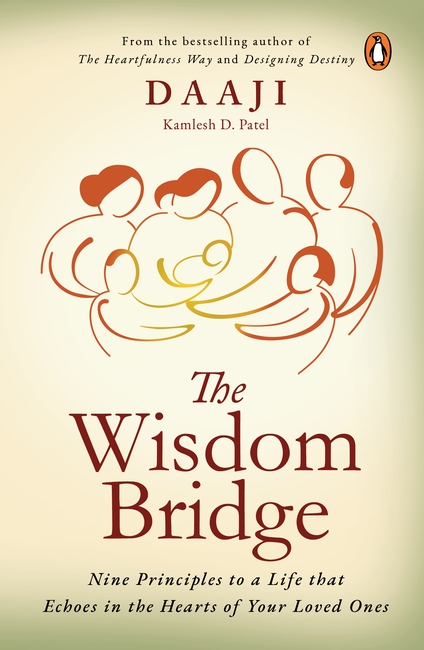
The intentions, thoughts and actions of the elders are caught by the hearts of the children. The children observe, learn and imbibe the teachings quickly and faithfully, and the elders have the responsibility to not only raise the children well, but nurture and guide them in a way that they can lead fulfilling lives.
Daaji in The Wisdom Bridge offers nine principles to guide you, the reader, to live a life that inspires your children and your loved ones.
Ritual
Vasudha Rai
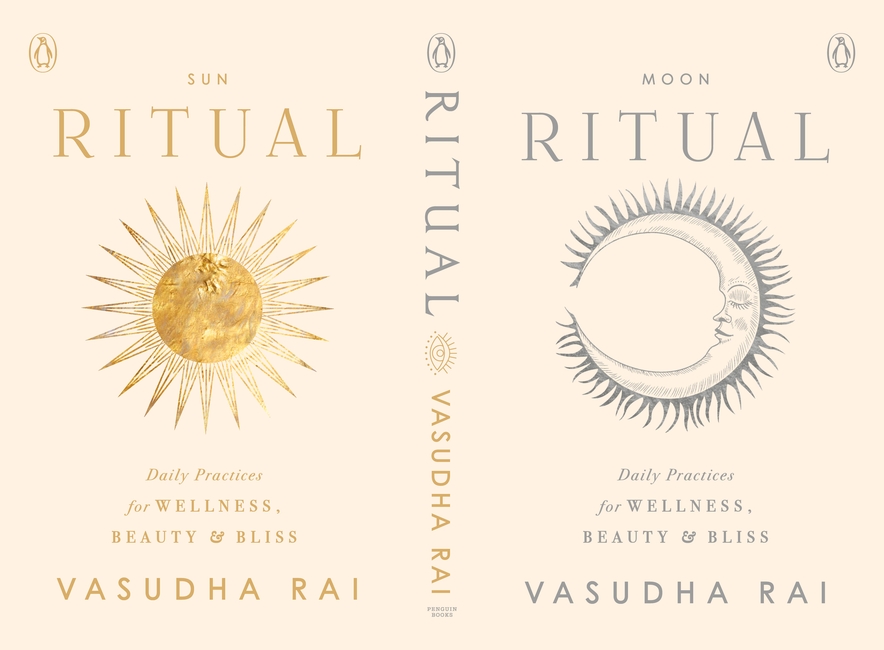
RITUAL is a collection of practices aimed at optimizing, harmonizing and maximizing the natural energies of the day and night
Renew your mind, body and spirit with activities such as sunbaths, sound healing, cleansing kriyas, beautifying masks, massages, breathwork and navel therapy. From sunrise to sunset, nightfall to dawn, these exercises will help you find moments of clarity, relaxation and bliss.
Gautam Adani
R.N. Bhaskar
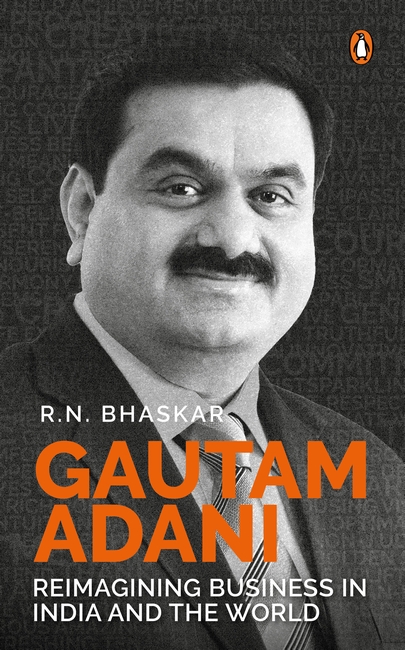
Gautam Adani needs no introduction. One of the richest men in the world, he also helms a business empire that is now India’s largest player in ports and renewable energy. He is also the country’s largest private sector player in sectors like airports, city gas distribution, power transmission, thermal power, edible oil, and railway lines. Yet, look beyond these facts, and startlingly little is known about Gautam Adani, the maverick businessman; about his motivations and vision; about his life, and the episodes, minor and major, that propelled him to make the choices he did.
Winning Middle India
T.N. Hari, Bala Srinivasa
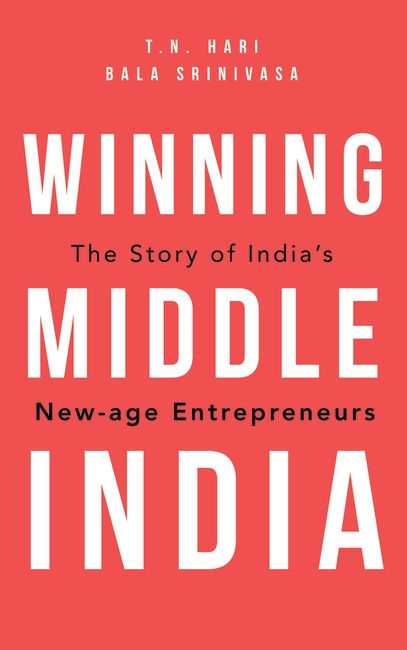
Is there a fundamental new catalyst that can significantly enhance access, affordability and quality of products and services to hundreds of millions of Indians? This catalyst is in the form of a new generation of start-up founders who are leveraging technology platforms, smartphone access, and rapid digitization of the Indian consumer. These young founders don’t carry the baggage of the past and are attracted to the opportunity of breaking open the massive market of Middle India-the next 400-500M Indians just below the top of the pyramid. This book is about this new and powerful force of change blowing across India-what it takes to harness this and reshape the destiny of this country.
Against All Odds
The IT Story of India
S. ‘Kris’ Gopalakrishnan, N. Dayasindhu, Krishnan Narayanan
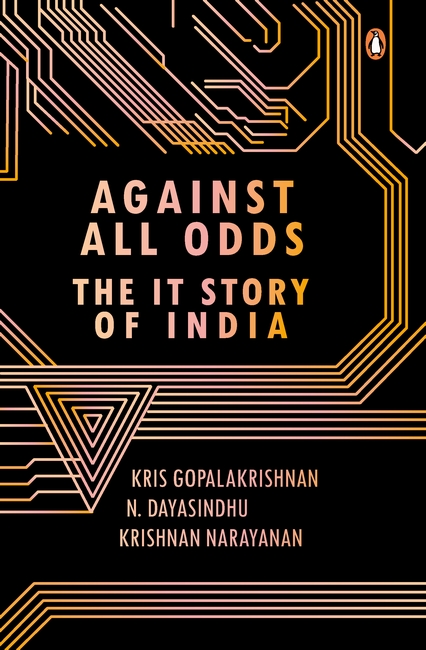
The story of Indian IT is the story of trials and triumphs, persistence and resilience, and luck, foresight and planning. This book chronicles the history of Indian IT over the past six decades. It includes interviews with over fifty pioneers who built and shaped the Indian IT sector. Conceived as a book on business history, this book analyses the evolution of India’s IT sector and helps readers understand the importance of collective efforts in building world-class sustainable institutions.
Nights of Plague
Orhan Pamuk
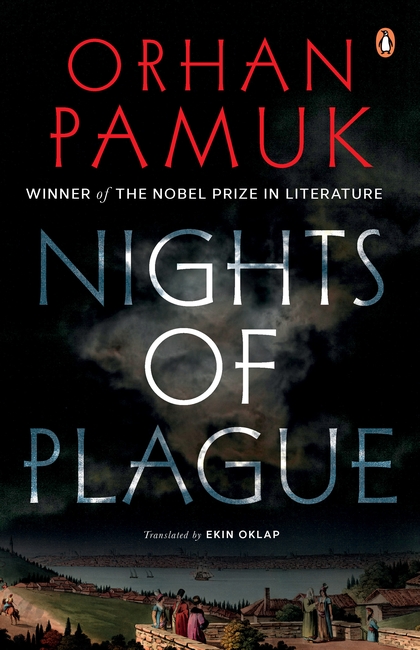
It is April 1900, in the Levant, on the imaginary island of Mingheria-the twenty-ninth state of the Ottoman Empire-located in the eastern Mediterranean between Crete and Cyprus. Half the population is Muslim, the other half are Orthodox Greeks, and tension is high between the two. When a plague arrives-brought either by Muslim pilgrims returning from the Mecca or by merchant vessels coming from Alexandria-the island revolts.
To stop the epidemic, the Ottoman sultan Abdul Hamid II sends his most accomplished quarantine expert to the island-an Orthodox Christian. Some of the Muslims, including followers of a popular religious sect and its leader Sheikh Hamdullah, refuse to take precautions or respect the quarantine. And then a murder occurs…
The Song of the Cell
An Exploration of Medicine and the New Human
Siddhartha Mukherjee
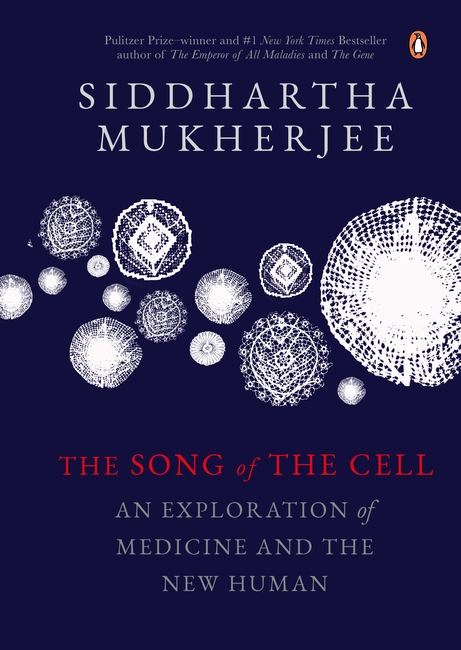
From Pulitzer Prize-winning and #1 New York Times bestselling author of The Emperor of All Maladies and The Gene, The Song of The Cell is the third book in this extraordinary writer’s exploration of what it means to be human-rich with Siddhartha Mukherjee’s revelatory and exhilarating stories of scientists, doctors, and all the patients whose lives may be saved by their work.
Hello Bastar
Rahul Pandita
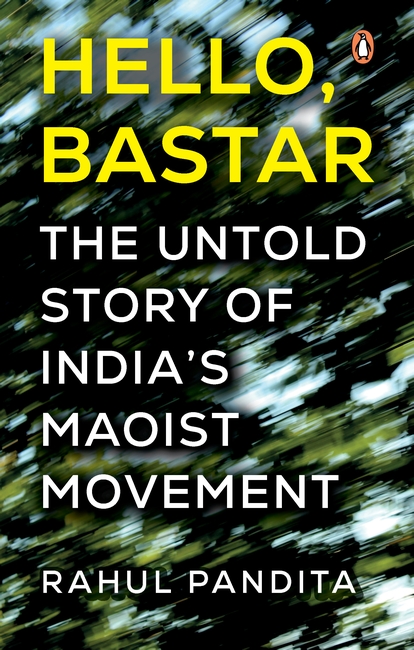
With direct access to the top Maoist leadership, Rahul Pandita provides an authoritative account of how a handful of men and women, who believed in the idea of revolution, entered Bastar in Central India in 1980 and created a powerful movement that New Delhi now terms as India’s biggest internal security threat. It traces the circumstances due to which the Maoist movement entrenched itself in about 10 states of India, carrying out deadly attacks against the Indian establishment in the name of the poor and the marginalised. It offers rare insight into the lives of Maoist guerillas and also of the Adivasi tribals living in the Red zone. Based on extensive on-ground reportage and exhaustive interviews with Maoist leaders including their supreme commander Ganapathi, Kobad Ghandy and others who are jailed or have been killed in police encounters, this book is a combination of firsthand storytelling and intrepid analysis.
Tejo Tungabhadra
Vasudhendra, Maithreyi Karnoor
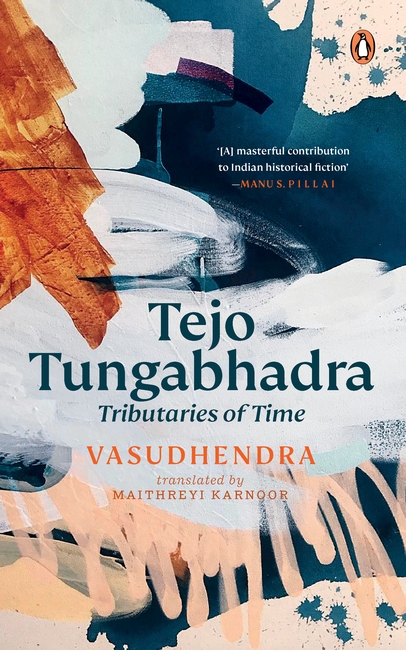
Tejo Tungabhadra tells the story of two rivers on different continents whose souls are bound together by history. On the banks of the river Tejo in Lisbon, Bella, a young Jewish refugee, and her family face daily threats to their lives and dignity from the deeply antisemitic society around them. Gabriel, her lover, sails to India with General Albuquerque’s fleet seeking wealth and a secure future for themselves. Meanwhile, on the banks of the Tungabhadra in the Vijayanagara Empire, the young couple Hampamma and Keshava find themselves caught in the storm of religious violence and the cruel rigmarole of tradition. The two stories converge in Goa with all the thunder and gush of meeting rivers. Set in the late 15th and early 16th century, Tejo Tungabhadra is a grand saga of love, ambition, greed, and a deep zest for life through the tossing waves of history.
Degh to Dastarkhwan
Qissas and Recipes from Rampur Cuisine
Tarana Husain Khan
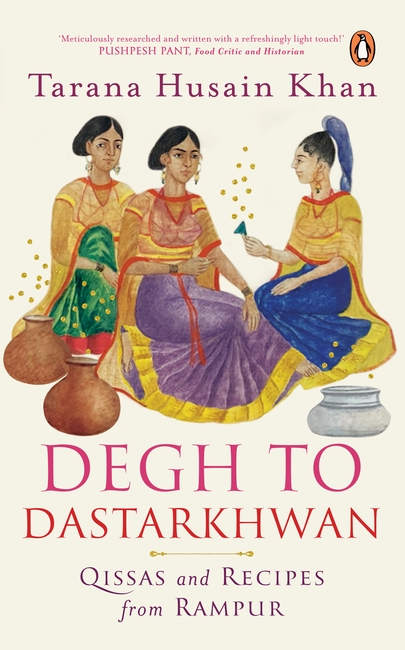
Tarana was an indifferent eater and an unenthusiastic cook until a chance encounter with a nineteenth-century Persian cookbook in Rampur’s fabled Raza Library started her off on a journey into the history of Rampur cuisine and the stories around it.
Part food memoir and part celebration of a cuisine, Degh to Dastarkhwan answers the question-‘what constitutes and distinguishes Rampur cuisine?’
Rethink Ageing
Nidhi Chawla, Reshmi Chakraborty
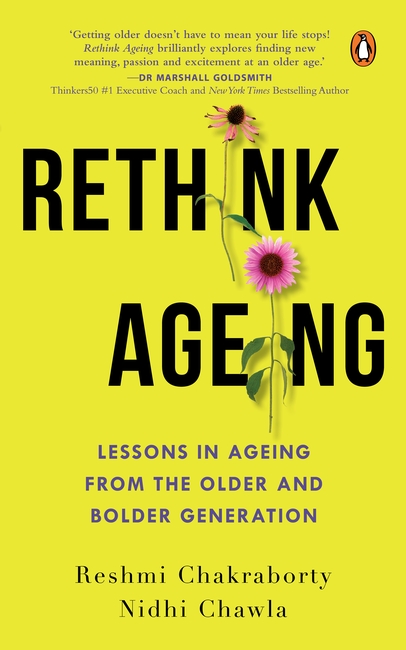
Veena Iyer, aged sixty-six, got a degree in dance movement therapy. She is training to upgrade her skill and now runs various workshops.
B.R. Janardan, aged eighty-seven, started running after sixty and has sixteen full marathons under his belt.
These important stories illustrate the shifting narrative for ageing in India. They battle the ageism that is deep-rooted in Indian culture with fixed notions of ‘approved’ behaviour. Grandchildren? Yes. Pilgrimage? Yes. But companionship? Gasp! A second career? Why the need?
Leopard Diaries
Sanjay Gubbi

In India, the leopard is a poster boy of the fight to preserve wildlife, but in many countries, it faces either ecological or local extinction. A worrying phenomenon, given that these cats carry out important ecosystem services that have not been fully understood yet.
In Leopard Diaries: The Rosette in India, Sanjay Gubbi, who has studied and documented the leopard for nearly a decade, gives us a close look at this fascinating creature. From detailing its food habits to throwing new light on how the young are reared, from offering suggestions on tackling leopard-human conflict to imagining the future of this arresting animal, this book is a 360-degree view of the leopard, its ecological context, its fraught relationship with the human world, and how wildlife and human beings can find a way to co-exist.
Ranis and the Raj
Queeny Pradhan
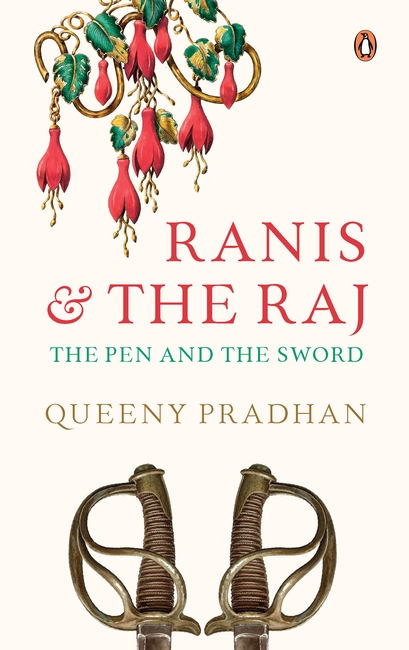
Traditionally, history has been telling us the stories of kings. In the long tradition of history writing, his-story has always dominated over her-story. Though queens evoke a sense of romance and their stories are told like fairy tales, it is common enough to find that these stories end in tragedy. In India’s history, not all queens are remembered today. Some are celebrated; while others have been almost ignored by historians.
In Ranis and the Raj, Queeny Pradhan has selected six queens. All the six queens are from the nineteenth century and have faced the British Raj, the East India Company and the Crown. Unlike the biographical convention in traditional history writing, the research in this book can be placed in the realm of ‘microhistory’. The life stories of these queens are fragmented due to the ‘silences’ and ‘invisibilization’ in political history of the time, and this book aims to fill these gaps.
The Essentials of Hinduism
Trilochan Sastry
Hinduism is an ancient religion, philosophy and way of life. Unlike other great religions that are based on a small set of books, there are hundreds of texts in Hinduism, most of which are very voluminous. They span not merely centuries, but millennia. And most importantly, these ancient scriptures are all in Sanskrit which many do not know. Therefore for a beginner with an interest in Hinduism it is a daunting task as you don’t know where to start such a study. In The Essentials of Hinduism, Trilochan Sastry unpacks all the ancient texts from the Vedas to the epics covering the entire range of scriptures and everything you need to know about them in an easy-to-read and accessible way making it of special interest to Hindus and those from other religions and nations, and even those who are agnostic or atheistic.









